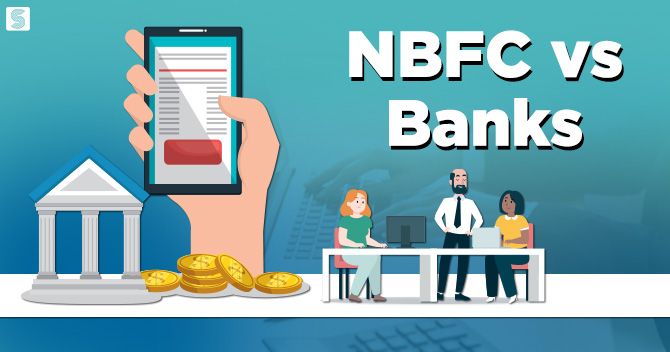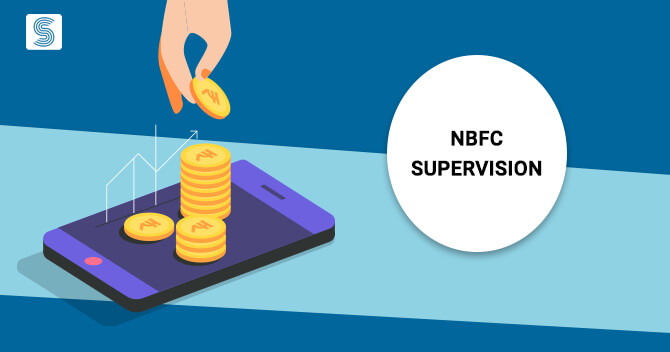P2P Lending RBI Regulations – Future of P2P Lending in India

Monisha Chaudhary | Updated: Nov 06, 2017 | Category: NBFC
After immense discussion on P2P lending regulations in India, the Reserve Bank of India issued gazette notification dated 18th September 2017 stating that peer to peer companies who provide loan facility service will be treated as Non-Banking Financial Companies (NBFC). Though the regulator’s detailed guidelines for this sector are still pending, this development means that P2P companies are now recognized by the banking regulator. Lets discuss about P2P Lending RBI Regulations and market analysis.
Table of Contents
What is Peer to Peer Lending?
- Peer to Peer lending which is known as P2P lending is a method of debt financing. This is online services which enable individuals to borrow and lend money without the use of an official financial as an intermediary. P2P provides a platform or market for borrowers and lenders.
- Lenders and Borrowers have to register to use the platform.
- All are listed on platforms under different risk categories and the interest rates vary for each category.
- The registration fees and processing fees are charged based on the amount and term for which the loan is borrowed.
Regulatory Guidelines for P2P Lending:
Since we all know that P2P lending in India is legal but not yet regulated. Up until now, the P2P Companies were registered under the Companies Act, however, on 18th it has recognized as NBFC. RBI[1] is closely working on the guidelines for P2P lending.
Peer-to-Peer (P2P) lending is one such business model that has gathered momentum globally and is taking roots in India. In April 2016 RBI had issued consulting paper on P2P lending.
Also, Read: Peer to Peer Lending Regulations in India.
The proposed regulatory framework discussed under Consulting Paper:
The following aspects may cover into a proposed regulatory framework of the P2P lending:
Permitted Activity:
- The P2P companies will serve as intermediaries between lenders and borrowers on the platform. The portal would work as the loan originator where the lending and borrowing would not reflect on its balance sheet.
- The platform will be forbidden from giving any assured return either directly or indirectly.
- The funds will have to transfer from the lender’s bank account to the borrower’s bank account which will reduce the threat of money laundering.
- P2P lending platforms will prohibit all cross-border transactions, under the FEMA guidelines for transactions between residents and non-residents.
Prudential Requirements:
- The P2P lending company shall have 2 Crore capital.
- Unconventional lending practices are often availed by uninformed lenders looking to gain high returns on investments. In such cases, it would be cautious to have a limit on the maximum contribution any lender can make towards a loan.
Governance Requirements:
RBI would set criteria for promoters, directors, and the CEO of P2P lending companies. It may also require promoters, directors, and the CEO of P2P lending companies to be regulated.
Business Continuity Plan:
The platforms need to incorporate efficient risk management systems to ensure smooth operations. Business Continuity Plan (BCP) will permit the company to continue operations, even when the platform itself has failed.
Customer Interface:
A grievance redressal mechanism shall be put in place to deal with complaints from both lenders and borrowers. Privacy of customer data and data security is of paramount importance and should be ensured by the platforms.
Reporting Requirements:
The guidelines should have a regulation which mandated to submit regular reports on their financial position, loans arranged each quarter as well as borrower and lender complaints to the Reserve Bank of India.
The Future of P2P Lending in India:
In India, the P2P lending market is still new to develop. Expected to turn into the large industry by 2023, space is home to more than 30 peer-to-peer lending start-ups specializing in a number of domains, including personal loans, payday loans, student loans, microfinance, consumer loans, and business loans. The P2P personal loans players like iLend, Slab, Hedwig, and Pearland, on the other hand, SME Cash Loans and SME Bank deals in commercial loans, wherein Lend Smart provides consumer loans. Anytime Loan disburses payday loans at low interest rates and for short durations.
The intact revolution is making way for a potential Online P2P Lending Empire in India. The timely implementation of regulations will not only help bring order to India’s inexperienced P2P lending realm but will also aid in its growth and expansion in the future.
Peer to Peer lending in India- Market size estimated to $ 5 Billion
India is estimated to world biggest P2P lending market and in our opinion, the P2P Lending market can easily cross to $ 5 Billion in the next 2-3 years. The growth was very slow due to no regulation in this industry. However, looking at the market potential of India, We believe that P2P lending market will cross $ 50 Billion in the next 12 years. P2P lending is expected to before faster than NBFC / Bank lending process. Since P2P is focusing on small ticket size Rs. 20,000 to Rs. 1,50,000. The interest rate varies between 12 % to 18%. The interest rate is calculated based on the traditional CIBIL scores & Alternative credit scoring method.
“As a P2P lending platform, it also comes under the Information Technology Act. Still in India P2P lending is new as currently there is no regulator, however, Swarit Advisors team is in active engagement with the RBI to bring P2P lending business under its regulatory cross check and well define regulation will encourage start-ups to come in with more innovative ideas in community-based lending business.














